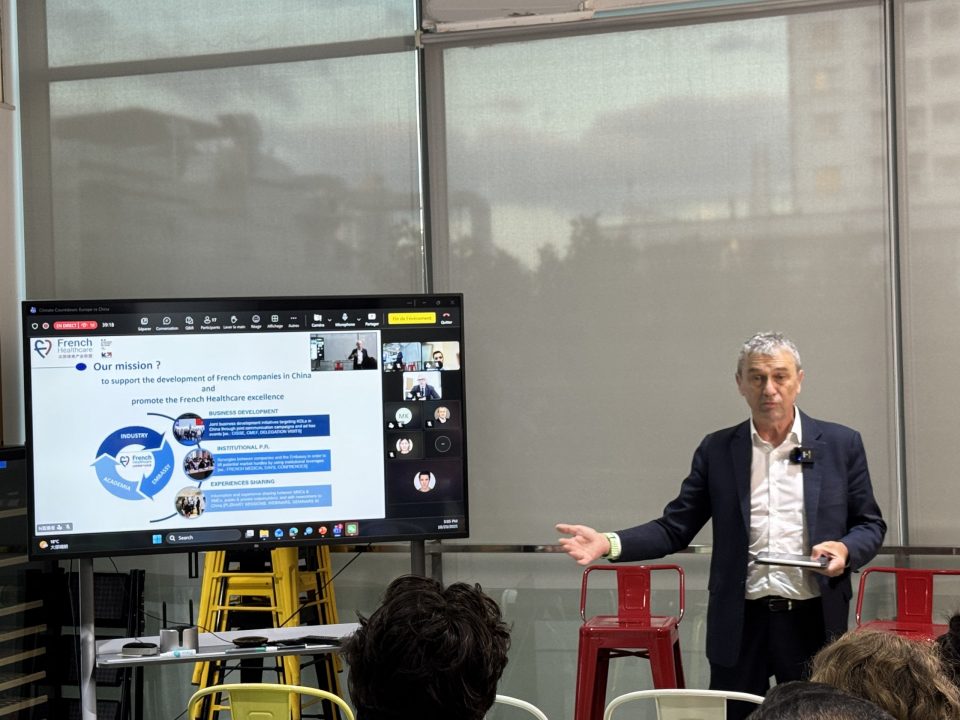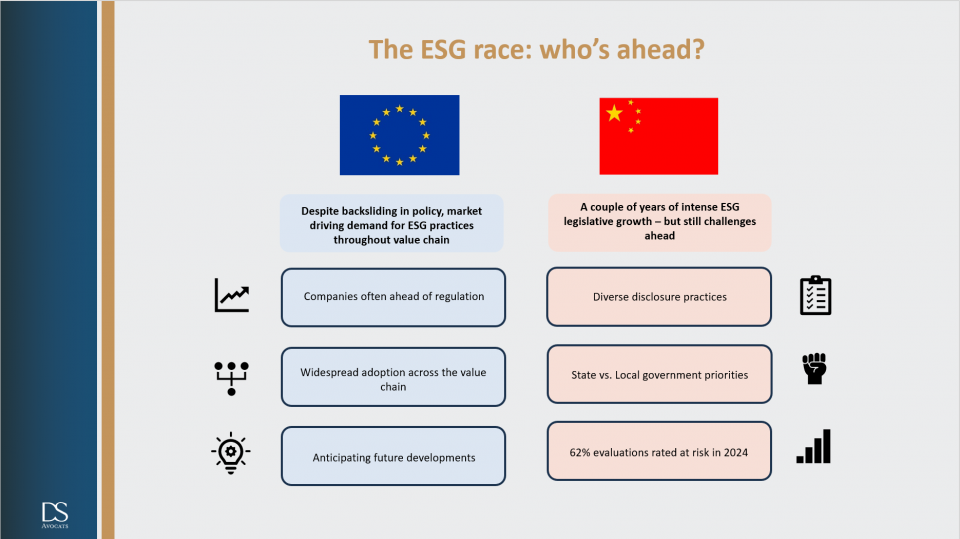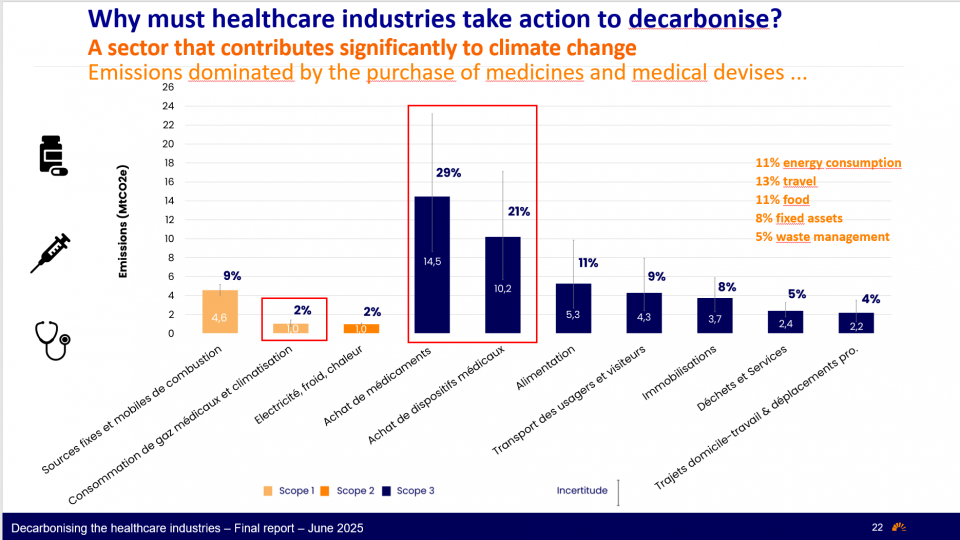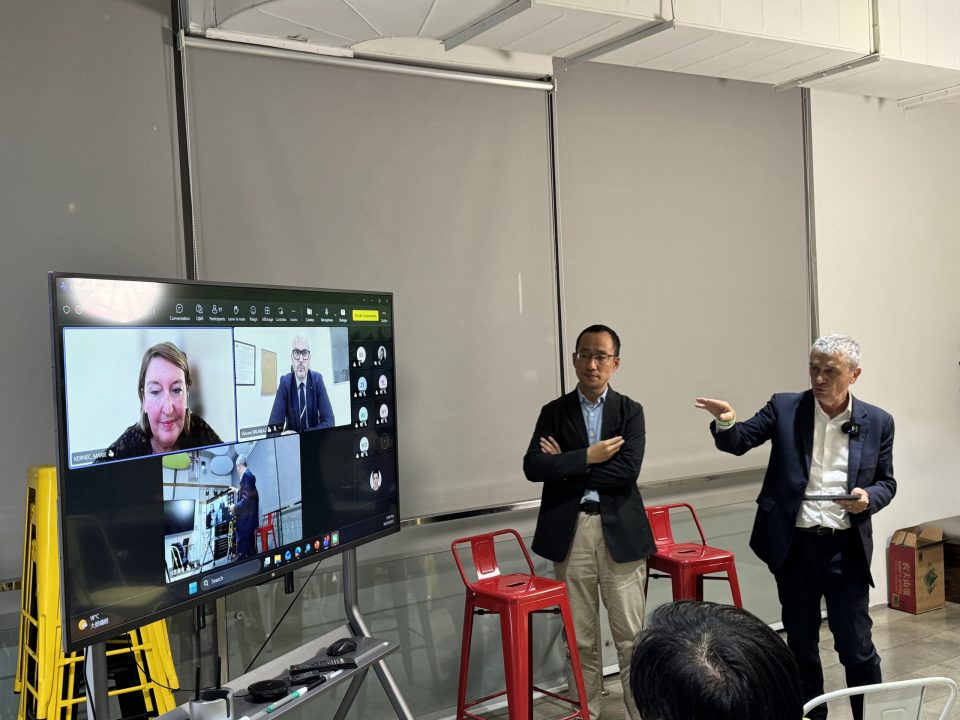
Webinar Recording
Last Thursday, Akila and the French Healthcare successfully co-hosted the “Climate Countdown: China vs Europe” thematic webinar at Akila’s Shanghai office. The event brought together industry experts from Akila, Schneider Electric, bioMérieux, DS Avocats, and the EHESP. The dialogue focused on two key topics: the evolving ESG regulatory landscapes in China and Europe, and the urgent need for decarbonization in the healthcare sector.
During the event, Akila and industry experts shared that digital solutions centered on digital twin and AI technologies are becoming a key engine for achieving deep decarbonization in the healthcare industry. With deep expertise and industry insight in the healthcare sector, and based on a thorough understanding of the unique operational needs and sustainable development challenges of medical facilities, Akila supports global clients in building smarter, lower-carbon medical facilities.
ESG Regulations: A Dual-Track Wave of Regulatory Development
Sacha Brodetsky from DS Avocats pointed out that a regulatory race is unfolding globally. Europe is transforming sustainability from a voluntary goal into binding law through the European Green Deal, with frameworks like the Corporate Sustainability Reporting Directive (CSRD) and the Corporate Sustainability Due Diligence Directive (CSDDD) having extraterritorial effect, compelling global supply chains to align with EU standards.

China is also advancing rapidly. With the strong push for “Ecological Civilization Construction,” a series of key policies have been introduced:
-
Corporate Sustainability Disclosure Standards (2024)
-
Climate Disclosure Standards (2025 draft) highly aligned with EU standards
Despite ongoing policy progress, 62% of companies still fell into the “risk zone” for ESG ratings in 2024, highlighting a significant gap between policy and implementation.
Healthcare Decarbonization: An Urgent Industry Mission
Marie Kernec from the EHESP shared data indicating that the healthcare sector accounts for 8% of France’s total carbon footprint, with pharmaceuticals and medical devices contributing up to 50% of these emissions.

Key Levers for Achieving Decarbonization
-
Reducing Consumption & Shifting to Preventive Models
Beyond production processes, the event emphasized the need to reduce overconsumption, citing specific examples:
-
Overprescription: Antibiotic prescriptions in France are double those in Germany, without corresponding advantages in life expectancy.
-
Alternatives: Promoting low-carbon alternatives, such as replacing some MRI scans with ultrasound examinations, or using dry powder inhalers instead of pressurized metered-dose inhalers.
-
-
Building a Preventive Health System
Transitioning from a treatment-focused model to one centered on prevention and health promotion is crucial. Currently, only 2% of France’s health budget is allocated to prevention—a key area requiring policy optimization.
Roundtable Consensus: Towards a Shared Future
In a roundtable discussion featuring bioMérieux’s Jefferey Zhou, Schneider Electric’s Vincent Bruneau, and Akila SVP Philippe Obry, Philippe Obry highlighted the significant environmental impact of healthcare facilities—including their high-energy consumption patterns and carbon emissions—from the perspective of buildings and their systems. He emphasized the importance of data-driven digital twin solutions for achieving true decarbonization goals.
A consensus emerged among participants: although Europe and China may differ in their pathways for advancing the ESG agenda, companies in both regions must accelerate their transformation. Decarbonizing the healthcare sector is not merely an environmental issue; it is an imperative choice linked to strategic positioning, sovereign responsibility, and economic development



